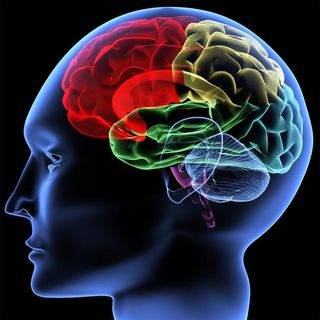Brains of Introverts Reveal Why They Prefer Being Alone

Human faces may hold more meaning for socially outgoing individuals than for their more introverted counterparts, a new study suggests.
The results show the brains of extroverts pay more attention to human faces than do introverts. In fact, introverts' brains didn't seem to distinguish between inanimate objects and human faces.
The findings might partly explain why extroverts are more motivated to seek the company of others than are introverts, or why a particularly shy person might rather hang out with a good book than a group of friends.
The study also adds weight to idea that underlying neural differences in people's brains contribute to their personality.
"This is just one more piece of evidence to support the assertion that personality is not merely a psychology concept," said study researcher Inna Fishman, of the Salk Institute for Biological Sciences in La Jolla, Calif. "There's some broader foundation for the behavior that you see … implicating that there are neural bases for different personality types."
Personality in the brain
There are many ways to describe someone's character — from talkative to anxious to hardworking and organized. Psychologists have found that many traits often go together and have grouped these traits into five overarching categories — extroversion, neuroticism, agreeableness, conscientiousness and openness/intellect.
Sign up for the Live Science daily newsletter now
Get the world’s most fascinating discoveries delivered straight to your inbox.
Extroversion deals with the way people interact with others. Extroverts like to be around other people and generally enjoy social situations while introverts are the opposite. Previous studies have shown that people who are extroverted also tend to be more assertive, experience more positive feelings and get more out of rewards in general.
However, no one had looked to see whether extroverts are more sensitive to stimuli specifically related to social situations, such as faces.
To find out, Fishman and her colleagues recruited 28 participants ages 18 to 40 that ranged in personality from introverted to somewhat extroverted to very extroverted. Electrodes placed on the subjects' scalps recorded the electrical activity in their brains, a technique known as electroencephalography, or EEG.
The researchers studied a particular change in the brain's electrical activity known as P300. The change, which shows up as a deflection on a person's EEG, can be elicited by certain tasks or by a change in the environment, such as when the room is very quiet and you all of a sudden hear a loud nose. The brains' reaction occurs within 300 milliseconds, before the person is aware of the change.
To evoke P300, Fishman used a method known as the "oddball task" in which subjects see a series of very similar images, such as a bunch of blue cars, and then all of a sudden, a slightly different image appears, such as a red car.
In the current experiment, subjects saw a series of male faces and every so often a female face appeared. They were also shown pictures of purple flowers interspersed with pictures of yellow ones.
Faces or flowers?
The higher subjects had scored on a test for extroversion, the greater their P300 response was to human faces. In other words, extroverts pay more attention to human faces (P300 can be seen as an indicator of human attention, or how fast their brains' noticed that something has changed.)
There was no link between scores on extroversion and the P300 response to flowers.
Introverts had very similar P300 responses to both human faces and to flowers.
"They just didn’t place a larger weight on social stimuli than they did on any other stimuli, of which flowers are one example," Fishman said.
"[This] supports the claim that introverts, or their brains, might be indifferent to people — they can take them or leave them, so to speak. The introvert's brain treats interactions with people the same way it treats encounters with other, non-human information, such as inanimate objects for example," Fishman told LiveScience.
The results strongly suggest that human faces, or people in general, hold more significance for extroverts, or are more meaningful for them, Fishman said.
The study was presented in a poster session on Friday at the 118th Annual Convention of the American Psychological Association.
- Top 10 Things You Didn't Know About the Brain
- Top 10 Mysteries of the Mind
- Study Sheds Light on What Makes People Shy

Rachael is a Live Science contributor, and was a former channel editor and senior writer for Live Science between 2010 and 2022. She has a master's degree in journalism from New York University's Science, Health and Environmental Reporting Program. She also holds a B.S. in molecular biology and an M.S. in biology from the University of California, San Diego. Her work has appeared in Scienceline, The Washington Post and Scientific American.
Most Popular


